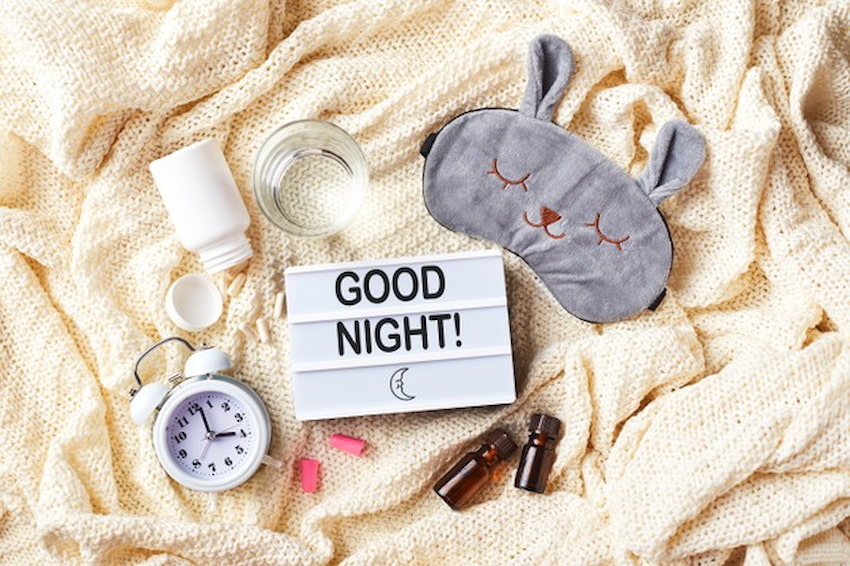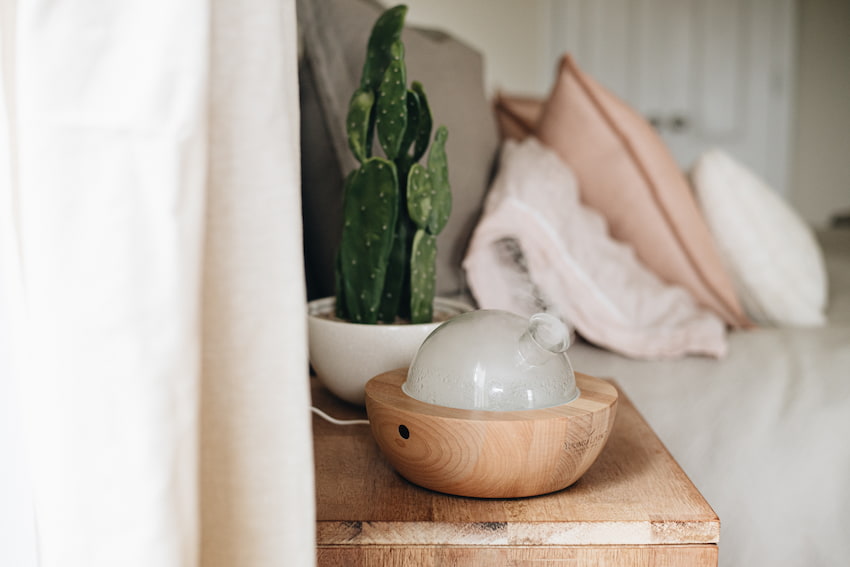In today’s fast-paced life, sleep has taken a backseat on the endless list of tasks that can take over our day. The result of this is that we often don’t get enough rest. But, just like drinking enough water, eating well and exercising are essential to our overall health, so is getting the right amount of sleep. Not getting the recommended seven or eight hours of sleep each night, over time, can put your health in jeopardy. Sleep is what allows your body to repair itself. Lack of sleep can weaken your immune system, leaving you more susceptible to getting and staying ill.

If you stop to think just how many things can affect the amount or quality of sleep you get every night, you’ll certainly feel overwhelmed. Probably it would be easier if you had a couple of hours extra each day. However, there are some habits you can start forming to help you get better sleep.
Create a Nighttime Routine
Creating a nighttime routine can help get you in the habit of calming yourself down before you go to sleep. A nighttime routine can include doing some light stretches, reading a book, or it could be as simple as washing your face and brushing your teeth. This should also include disconnecting from gadgets, like your phone, laptop, etc. The artificial lights from screens trick your brain into being more awake than it should, causing you to stay alert when you should be turning off. Screen lights are also known to disrupt your body’s production of melatonin, which regulates sleep.
Use Essential Oils to Help You Sleep Better
Healing herbal oils have been used since ancient times as a unique way to relieve stress and relax the body and modern research continues to support the benefits of essential oils. Countless studies have shown that certain smells can intervene in the stress response by keeping cortisol levels under control and restoring calm to the nervous systems.
During high periods of stress, getting a good night’s sleep is almost impossible. If you’re under stress, you can use essential oils to help you sleep. What is the best essential oil to help you sleep, you may ask? Chamomile is one of them. This herb has been long praised for its high dose of flavonoids, which makes it particularly useful for treating digestive and stomach issues. Its smell is also known for gently calming the nerves and soothing stress and tension, making it one of the best essential oils for sleep.

Next on the list of essential oils to help you sleep comes lavender. Lavender essential oil not only has a soothing scent but also has anti-microbial, anti-fungal and anti-viral properties. This can help with headaches, muscle pain, nervousness, and other mood disorders. For relaxation before bedtime, mix a few drops of lavender essential oil with geranium, clary sage and ylang-ylang in a spray bottle of distilled water. Spray it in the room to help you relax before sleep.
Another great essential oil to use to help you sleep better is rose oil. Besides being relaxing, this essential oil is known to help relieve anxiety, stress and depression. It is recommended for bedtime use because it helps you feel centred, grounded and secure before bedtime.
There are different ways you can use essential oils to reap their benefits. One of them is rubbing a few drops on certain parts of your body such as the wrist, chest, forehead, neck, hands or feet. You may want to combine the pure essential oils with a carrier oil like coconut or grapeseed to prevent irritation on the skin. You can also pour a few drops into an air diffuser to disperse the fragrance in your room.
Don’t Consume Caffeine, Nicotine and Alcohol Before Bed
Coffee may be great for waking you up in the morning, but it is not so great for easing you into sleep at the end of the day. You may also want to limit the amount of alcohol you drink when you need to get a good night’s sleep. While alcohol may help you fall asleep, it can disrupt your sleep throughout the night as your body starts to process it. If you feel you need a warm beverage to relax before you go to bed, consider drinking decaf tea or warm milk.

Don’t Eat Before Bedtime
When you eat right before you go to bed, you don’t give your body enough time to digest the food, and this can interrupt your sleep cycle. You may even experience painful heartburn, which will definitely make it difficult for you to fall asleep.
Exercise Regularly
Exercise makes you tired, which in turn can help you sleep better at night. Even as little as 15 minutes of exercise a day can help improve your sleep quality. And let’s not forget that exercise is also vital to reducing stress and helping maintain hormonal balances, both of which can lead to better sleep quality. Just don’t exercise too close to bedtime – this will stimulate your body and brain without giving it enough time to relax again before bed.













